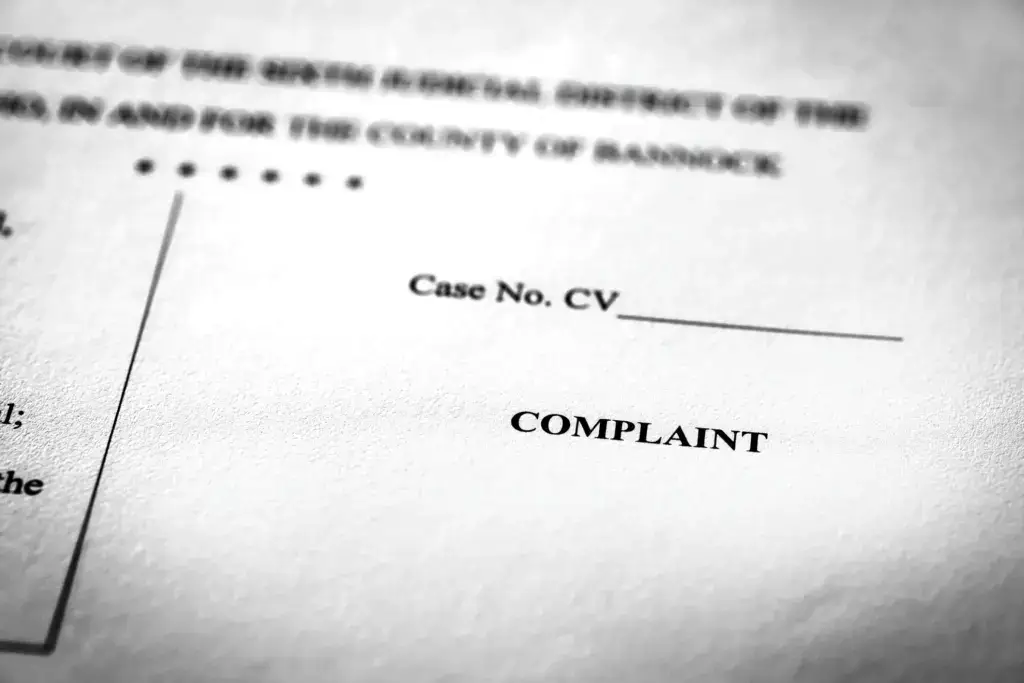When seeking legal assistance, it is important to know the significant difference between a litigator and an attorney. While these are commonly treated as the same, they refer to specific roles that distinguish one from the other. Identifying these distinctions can help you decide who will meet your specific needs, whether you are looking for courtroom representation or other forms of legal services.
What is a Litigator?

A litigator is a type of lawyer who specializes in representing clients in lawsuits and legal disputes that may go to court. They handle a variety of cases in criminal law and civil litigation and are tasked to advocate on their client’s behalf and resolve disputes through the legal process. Litigators possess a deep understanding of the law, court procedurals, and arguing cases before a judge and jury. Below are a few tasks that experienced litigators are expected to fulfill:
- Evaluate a case to identify any strengths or weaknesses
- Legal research covering laws, precedents, and rules that are relevant to the case
- Prepare legal documents for the court
- Collect evidence to build a strong claim, like acquiring surveillance footage or witness information
- Try to resolve the problem through a negotiation or mediation
- Represent clients in hearings, trials, and appeals
What Is an Attorney?
A attorney is someone who has studied law and knows how the legal system works. They can be referred to as attorneys and counselors depending on the context and jurisdiction. To become a lawyer in California, you will need to have the following completed:
- A bachelor’s degree
- Finish law school or complete a 4-year apprenticeship
- Pass the state bar exam
- Take the oath
- Meet ethical eligibility criteria
Is an Attorney Like a Lawyer?
The terms attorney and lawyer can be used interchangeably to refer to an individual who is trained and licensed to practice law. But, there are some subtle differences to take note of. A lawyer is someone who has earned a law degree, but has yet to pass the bar exam or may be pursuing a non-legal career. An attorney, however, is actively licensed to practice law and has the ability to:
- Explain a client’s rights and options
- Draft legal documents
- Represent clients in court if a case heads to trial
- Apply equipped legal knowledge and expertise to support client’s interests
- Mediate disputes or negotiate settlements
Attorneys focus on applying their legal knowledge and expertise into practice through client counseling, resolution discussions, and handling necessary paperwork.
When Should You Hire a Litigator?
You should hire a litigator if you notice a legal dispute becoming serious. Whether you are pursuing a lawsuit or defending yourself against one, seeking such assistance will help protect your interests and secure a favorable outcome. Common situations in which a litigator would be the right choice include the following:
- You are being sued or need to submit a lawsuit
- An insurance claim (subrogation or denial) may go to trial
- You are involved in a personal injury case in which the opposing side is disputing liability for an accident
Even if your case has yet to reach the courtroom, including a litigator early on can help strengthen your position, avoid costly mistakes, and improve your likelihood of receiving satisfactory results prior to trial. If a case settles outside of court, which most do, it is what the litigator does behind the scenes that gets the job done.
What Is the Difference Between a Litigator and a Lawyer?
A lawyer is someone who is licensed to practice law. They can give legal guidance, draft contracts, and represent clients in various types of cases. Not all lawyers participate in court activities and may put their attention on non-litigation work, such as real estate or business transactions.
A litigator, on the other hand, focuses on legal disputes that could end up in court. They are involved throughout all parts of the litigation process, including:
- Filing lawsuits
- Gathering evidence
- Negotiating settlements
- Representing clients in court
Basically, all litigators are lawyers, but not all lawyers are litigators. One is more court-room focused whereas the other may work entirely outside of it based on their legal speciality.
Do You Have to Be a Lawyer to Be a Litigator?
You do have to be a licensed lawyer to be a litigator. This role requires you to have not only a deep understanding of law, but to also have strategic thinking skills. Litigators must identify strengths and weaknesses in cases, plan efficient tactics, and anticipate what the opposing parties are doing, all while advocating on your behalf in a high-pressure environment.
While various legal professionals work in the law field, like a paralegal or law clerk, only licensed lawyers can act as litigators. These supportive roles help in terms of documentation and research, but do not necessarily involve court appearances. Only lawyers may have the right to lead a case, present arguments before a judge, and make informed decisions on legal matters.
However, as previously stated: not all lawyers are litigators. Many of them may focus on non-adversarial areas of law. These are roles that rarely ever require a courtroom appearance. The field of litigation attracts those who are drawn to arguments and are interested in tackling complex issues under pressure.
What Type of Lawyers Do Not Litigate?
Many lawyers rarely ever participate in litigation and this includes those who are heavily involved in the following occupations:
- Transactional lawyers
- Estate planning lawyers
- Corporate lawyers
- Intellectual property lawyers
- Real estate lawyers
- Tax lawyers
Instead, these particular lawyers provide legal advice, focus on handling paperwork, and take part in negotiations rather than involve themselves with courtroom procedures.
What Is the Difference Between a Litigator and a Transactional Lawyer?
As previously stated, litigators handle disputes that go through legal proceedings or alternative approaches, like arbitration or mediation. They represent clients by preparing legal documents, interviewing witnesses, and pleading cases to the judge or jury. Additionally, they will advocate on behalf of clients when it comes to contracts, personal injury, criminal cases, or other legal issues. It typically involves investigations, acquiring evidence, and courtroom procedures.
Transactional lawyers, on the other hand, will work outside of court. They assist clients with business and finance-related matters by drafting contracts, negotiating deals, ensuring laws are being followed, and advising on mergers and acquisitions. Their goal is to make sure clients do not get involved in legal disputes by carefully going over agreements and business practices. This particular occupation highlights negotiations, drafting accurate documents, and providing legal insight to clients.
Is Litigation the Same as Lawsuit?
Although they may be related, litigation and a lawsuit are not necessarily the same thing. Litigation describes the legal process of resolving a dispute through court proceedings. It involves everything from the moment conflict begins, like sending demand letters, filing a complaint, acquiring evidence, going to trial, and possibly appealing the final decision. Litigation may include several steps and take months or even years to resolve.
A lawsuit is a case brought to court by one party against another to settle a dispute. The plaintiff is pursuing legal action in order to seek compensation for any losses incurred. This is just a step within litigation, whereas litigation itself is the whole legal journey.
Need a Personal Injury Lawyer? West Coast Trial Lawyers Is Here to Help
Knowing the difference between an attorney, lawyer, and a litigator can help you make informed decisions when encountering legal issues. Most law offices often provide a broad range of services. Understanding the type of lawyer you are in need of will ensure you are matched with the right expertise from the very beginning, minimizing the likelihood of encountering mistakes that could affect your settlement value.
At West Coast Trial Lawyers, our law firm has over 20 years of experience with personal injury cases. We offer dedicated legal representation for victims who have been injured as a result of someone else’s negligence. Whether you are suing someone with no money or are going against a well-funded defendant, we will work diligently to get you the compensation you are entitled to.
If you are wondering what you may be eligible for, you can use our personal injury settlement calculator by inputting the losses you sustained as a result of the incident you were involved in.
From car accidents to slip and fall injuries, we will guide you every step of the way, establishing a strategic approach with your legal needs and priorities in mind to secure a successful resolution on your behalf. To book a FREE consultation, you can connect with us by calling (213) 927-3700 or completing our quick online contact form.
















































































